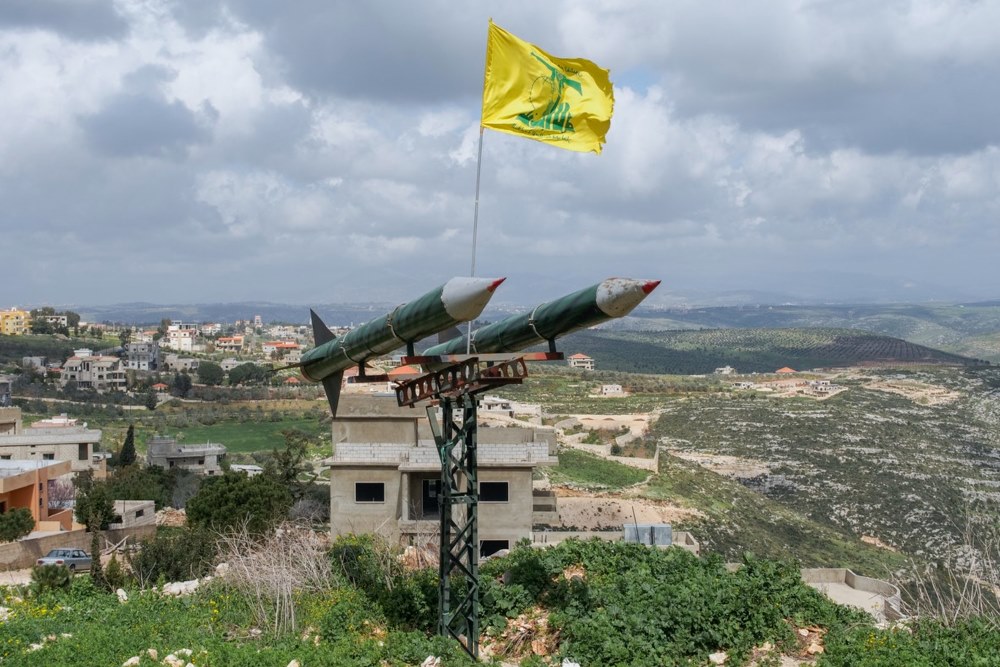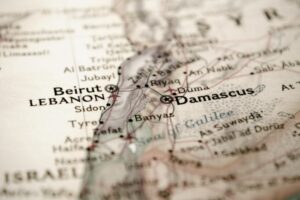
A full-scale war with Israel presents some critical strategic risks for Hezbollah and Iran.
While Hezbollah’s military capabilities are significant, the group’s reliance on a minority community in Lebanon creates a strategic vulnerability. A war with Israel that degrades Hezbollah’s strength could encourage domestic rivals to challenge its position within Lebanon’s complex sectarian landscape.
In parallel, diminishing Hezbollah power would deal a severe blow to Iran, potentially depriving Tehran of a key component of its Mideast strategy and regional posture.
The potential for conflict to spiral into broader sectarian strife underscores the high stakes involved for Hezbollah, Lebanon’s Shiite community and the Iran axis. As such, the prospect of full-scale war carries risks that extend far beyond the immediate military confrontation, placing Hezbollah in a weak strategic position.
Trouble in Lebanon?
Lebanon’s political system is based on a fragile power-sharing agreement between various religious communities. Shiites, while a significant minority, do not form a majority in Lebanon. This demographic reality underpins a key vulnerability for Hezbollah, which draws its primary support from the Shiite community.
Despite not representing a majority of the population, Hezbollah secured a powerful position in Lebanon through a combination of factors: It maintains a well-armed militia, often described as more powerful than the Lebanese army, and has a significant presence in the Lebanese parliament.
Hezbollah also provides extensive welfare and social services to its constituents, filling gaps left by the Lebanese state.
But Hezbollah would likely face devastating military consequences if it engages in a full-scale war with Israel. The IDF’s superior firepower and advanced capabilities could inflict significant damage on Hezbollah’s infrastructure, military assets, and leadership.
However, the aftermath of such a conflict could pose an even greater existential threat to Hezbollah’s position in Lebanon: A diminished military capability could leave Hezbollah vulnerable to severe internal challenges.
Other Lebanese factions, long resentful of Hezbollah’s outsized influence, might seize the opportunity to marginalize the group politically. A weakened Hezbollah could also embolden opponents among other communities, potentially leading to wide-scale violence against Shiites.
On top of this, the likely destruction of infrastructure and economic assets in a war could strain Hezbollah’s ability to provide social services, eroding its support base and further undermining its dominant position.
Potential post-war scenarios
In the wake of a major conflict, several scenarios could unfold: For example, other Lebanese factions could push for a new power-sharing agreement that diminishes Hezbollah’s role in governance.
Tensions could also escalate into open conflict between Shiites and other communities, particularly in areas where demographics are mixed.
Moreover, the strain of war and internal conflict could lead to a breakdown of Lebanon’s already fragile state institutions and economy, fully destroying Hezbollah’s base of operations and its claim to be part of a state actor.
In an extreme scenario, regional powers with interests in Lebanon might intervene to shape the post-conflict landscape, potentially at Hezbollah’s expense.
Overall, beyond military calculations, Hezbollah faces a complex set of domestic risks in a large-scale conflict with Israel. While the group’s military capabilities are formidable, its delicate position within Lebanon presents a significant vulnerability that could be exploited in the aftermath of a major conflict.
Iran’s strategic stake
The potential decline of Hezbollah and weakening of the Shiite community would have far-reaching consequences beyond Lebanon’s borders, particularly for Iran.
Hezbollah serves as Iran’s most powerful and effective proxy in the region, providing Tehran with strategic depth and a deterrent against Israel.
A significantly weakened Hezbollah would be a major strategic setback for Iran’s regional ambitions. It would deprive Iran of its most reliable partner in its “axis of resistance” against Israel and Western influence in the Middle East.
Moreover, it would compromise Iran’s ability to project power in the Levant and maintain pressure on Israel’s northern border. The loss of this vital asset could alter the balance of power in the region, potentially emboldening rivals and leaving Tehran more vulnerable to diplomatic and military pressures.
Consequently, Iran might be compelled to reassess its regional strategy and seek alternative means to maintain its influence, potentially leading to increased instability as it attempts to fill the vacuum left by a diminished Hezbollah.
Ultimately, the risks outlined here explain why Hezbollah and Iran have been very careful not to escalate the conflict in Lebanon so far. While the potential for full-scale war persists, these strategic calculations and concerns are at play behind the scenes, both in Beirut and Tehran.


